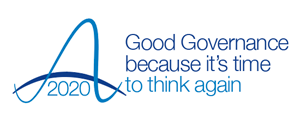Digital nurses
11 June 2020

Before COVID-19, considerable thought was already being given to the concept of digital nursing.
Last year Health Education England and the Royal College of Nursing led a Making every nurse an e-nurse campaign which received tacit endorsement from NHSE and NHS Digital. One of the things that emerged was the establishment of the Digital Nurse Network, part of the Primary Care Digital Transformation programme, which was launched in February 2019.
The RCN has also led a consultation exercise to explore the challenges faced by nurses in adapting to digital technology and the opportunities it offered to improve patient care.
This confirmed the perception amongst the majority of nurse that technology should be understood and embraced as an enabler for better patient care. But it also highlighted some barriers that stand in the way of delivering this tech-enabled vision.
These barriers include interoperability, shared common languages and access to information to support decision-making. At a more local level, barriers included outmoded and poorly designed systems and software, poor internet connectivity and a lack of support.
COVID-19 impact
Then along came COVID-19 and, just as in so many other sectors, the digitisation of primary care nursing found itself fast-tracked. At the frontline, nurses have embraced technology. Virtual (video and SMS) consultations have increased significantly and this has been well-received by both patients and staff. Patients because they see these virtual encounters as an improvement on phone consultations which can still be fit neatly into their daily activities. And staff because virtual consultations are less intensive and time-consuming while still offering good contact with patients and enabling them to offer good nursing care.
Virtual forums are increasingly being used for team meetings too. For example, it has been reported that some clinical commissioning group and sustainability and transformation partnership-wide nurse meetings have seen a 60% increase in attendance compared to pre-pandemic physical sessions.
Looking ahead
NHSX, the joint unit bringing together teams from the Department of Health and Social Care, NHS England and NHS Improvement to drive the digital transformation of healthcare, has begun to consult widely on the development on the tech plan for health and care.
Digital technology will doubtless play an important role in the ongoing quest for better, more efficient care and the pandemic has accelerated progress in a very positive way. But it’s important to recognise that the challenges associated with wider digital adoption in nursing have not gone away. They include:
- the need to ensure that undergraduate training keeps pace with and supports digital adoption
- the need to train and develop staff to improve digital literacy within the profession
- the need to think creatively around ways of working – and support staff as they adapt to this
- the need to think through a career framework for nursing and midwifery clinical information
- the need to build the evidence base through effective research
- the need to effectively engage with and then communicate any changes with patients and the public
- the need to reflect public digital literacy into any service design
Where should focus be placed?
1. Collective leadership
2. Professionalisation – education and learning
3. Reduced documentation burden
4. Core nursing data set – owned by nurses and for nursing
5. Medicines management
6. Better pathways – virtual contacts
7. Research and machine learning
8. Patients as active contributors
Natasha Philips, Chief Nursing Information Officer, NHSX
Similarly, Health Education England and Royal College of Nursing identified six digital literacy areas, which are described in a joint publication, Improving digital literacy:
- Digital identity, wellbeing, safety and security
- Communication, collaboration and participation
- Teaching, learning and personal/professional development
- Technical proficiency
- Information, data and media literacies
- Creation, innovation and scholarship.
It is encouraging to see so much focus on this important area. The pace of change in digital technology is mind-boggling and it’s only going in one direction. Just like almost every other profession, nursing must continue to modernise and adapt. There are real opportunities to deliver better and more personalised care but the way forward must be nurse-led and must happen in consultation with partners, patients and the public.
“Technology and information can make nursing safer because we can share information about patients with other professionals also involved in their care. An e-Nurse has to understand what good information governance looks like and how to share information safely.
“Data can help reduce unwarranted variation. It allows us to identify where there are gaps; the health and wellbeing gap, the care and quality gap and the funding and efficiency gap. Nursing, midwifery and care staff have a crucial role in this drive. There are some reasons why health and care outcomes may vary over which we have no control.
“Unwarranted variations are those which we could change if we choose to. They can be a sign of poor quality care, missed opportunities and waste, and can result in poorer outcomes, poorer experience and increased expense. Data helps us to explore these opportunities.”
Anne Cooper, Chief Nurse, NHS Digital
Questions for boards
We would suggest that boards could usefully be asking the following questions to ensure they stay on top of this important area.
- What support and training do our nurses need to deliver care digitally?
- What are the safeguards / IG risks we need to be mindful of?
- How are we partnering with private sector provider to deliver digital solutions for our communities?
- How are we engaging our communities in the design process?
- How are we supporting certain populations to better access digital solutions where needed?
- How are we ensuring that our online resources are easy to read and understand?
Call to action
If you have any questions or comments about this briefing, please call us on 07732 681120 or email advice@good-governance.org.uk.
Chris Smith
Consultant

